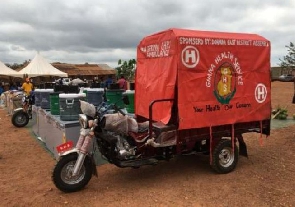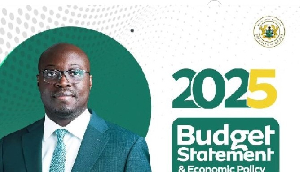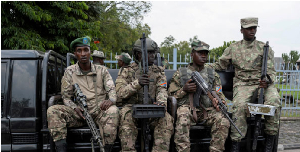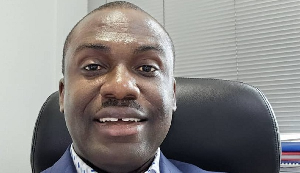Madam Emily Young, the Chief Executive Officer of Moving Health Ghana, a non-governmental organisation, has refurbished some tricycle ambulances for use by communities in the Sissala East Municipality of the Upper West Region, with improved safety for the sick.
The tricycle ambulances will help reduce referral time, thereby improving access to health care in real-time.
The communities are Kong, Bugubelle, Banu, Bawiesebelle, and Nabugubelle.
The Moving Health ambulance is a low-cost three-wheel vehicle that has provided access to safe, affordable, reliable emergency transportation to geographically neglected areas.
Madam Young announced this at Tumu at a workshop to relaunch and hand over the refurbished ambulances to the five communities.
She said other old ones would be refurbished for the benefit of other communities, which would bring the number to 10 in the Sissala East Municipality.
“The ambulances will be kept in the Community-based Health Planning and Services (CHPS) compounds to improve emergency health care,” she added.
“Our goal is to expand nationwide, and we think the system we have been able to design in Sissala East is applicable to many places in Ghana, Africa, and other parts of the world”.
The design was community-led, and it would be expanded to Wa East and other parts of the region and the country to respond to health emergencies.
Mr Isaac Quansah, the Country Director of Moving Health Ghana, said the NGO decided to improve upon the existing tricycle ambulances, launched in 2019, after complaints on their usage to effectively assist pregnant women to access emergency services.
“We have now built a multi-purpose new fabrication centre in Pulima near Tumu, where these emergency ambulances are designed and fabricated by artisans from the local area.”
“I am proud to say we can produce these refurbished ambulances here for any community that needs them.”
The ambulances come with improved ventilation, spacious with seats for four persons, a stretcher suitable for pregnant women and the sick, a locker to keep medicines, windows, fan, and lights bright enough to carry out emergency care.
They also have public address systems and serine to send out information.
Mr Quansah said the tricycles were robust and could function smoothly on “the bad road networks in the area” to reduce the delays in accessing emergency health care.
Madam Maria Johana Yourpor, the Regional Coordinator, Northern Development Authority, commended the organisation for taking up the challenge to solve women’s issues and promised an effective collaboration for the success of the project.
Mr Mohammed Issah Bataglia, the Country Director of Virtue Foundation, a partner to Moving Health, recalled an encounter he had with a pregnant woman in labour and later depicted that experience in a photograph, captioned: “Why must a woman die giving birth to a human being, can’t we do something about this?”.
This received attention from other partners and they started the idea to use the local emergency ambulances to help women in labour to reach health facilities faster.
He appealed to the communities to take good care of the ambulances to sustain them.
The Sissala East Municipal Manager of the National Ambulance Service, Mr Mohammed Yakubu, said the vehicles had been out of commission since October, 2022 and appealed to the Assembly to help repair them.
Health News of Saturday, 1 April 2023
Source: GNA







![Isaac Kwadwo Ampong [L] and President John Mahama Isaac Kwadwo Ampong [L] and President John Mahama](https://cdn.ghanaweb.com/imagelib/pics/549/54996138.295.jpg)





